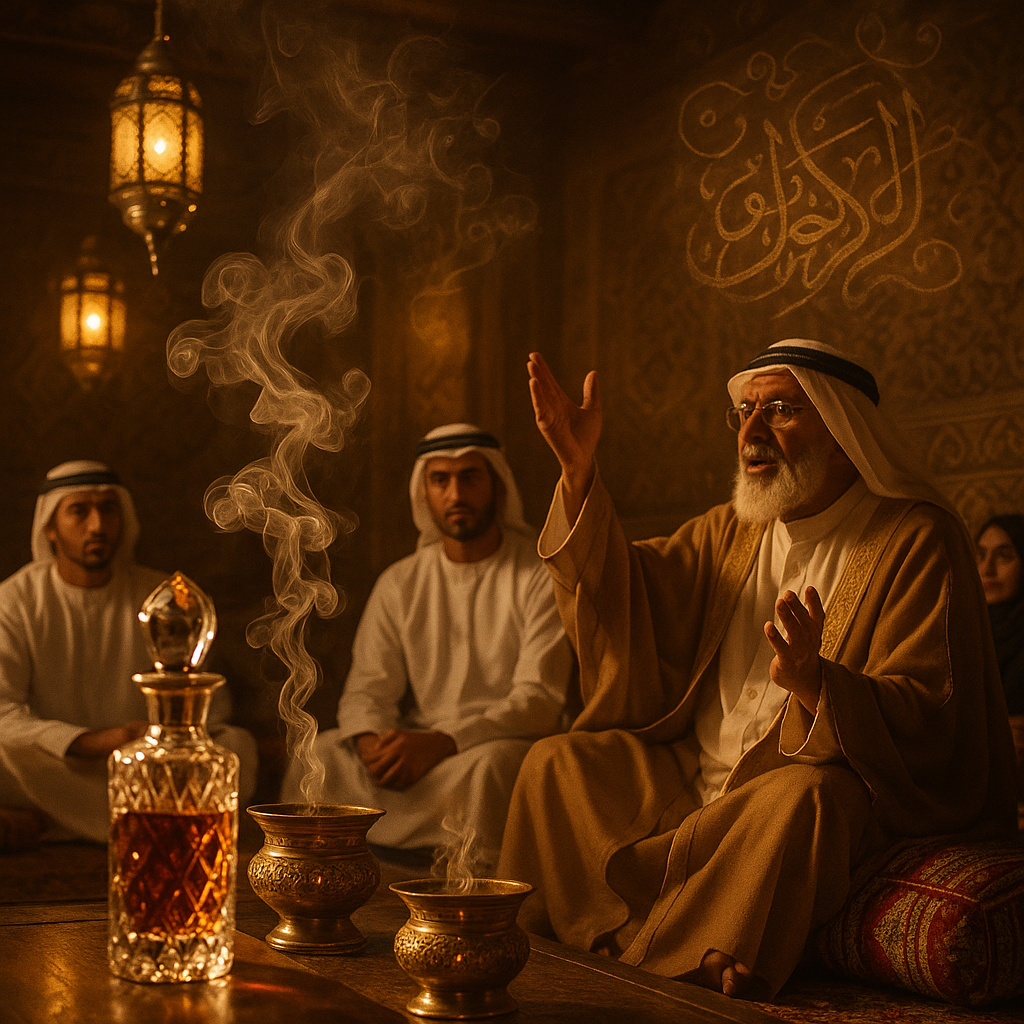“Some cultures speak with words, others with gestures — Emiratis often speak with scent and verse.”
Beauty Beyond the Visible
For Emiratis, beauty is not just something seen — it is something felt, breathed, and remembered. Unlike cultures that emphasize outward show, Emiratis weave their aesthetics through invisible languages: the lingering scent of oud, the curling smoke of bukhoor, and the rhythm of poetry that resonates in silence.
Oud: The Scent of Legacy
Oud is not simply perfume — it is liquid memory. Distilled from rare agarwood, each drop carries centuries of trade, ritual, and identity. When an Emirati wears oud, it is not for fashion but for presence.
-
Depth: a reminder of roots buried deep in the soil.
-
Mystery: a fragrance that lingers even after one leaves the room.
-
Respect: to greet others not with extravagance, but with subtle elegance.
Oud tells a story before words are spoken.
Bukhoor: The Smoke That Welcomes
When guests enter an Emirati home, bukhoor rises like a soft veil, winding through the air. This burning woodchip, soaked in oils, transforms any space into a sanctuary.
Bukhoor is not about the house smelling pleasant — it is about the house declaring: “You are welcome, you are honored.” Its smoke clings to clothes and hair, carrying the memory of hospitality long after the visit ends.
Poetry: Beauty Made Audible
If oud and bukhoor are invisible languages, poetry is the audible one. In Emirati culture, poetry is not decoration but communication at its highest level. Nabati poetry captures feelings too complex for prose, expressing loyalty, love, grief, and pride.
A verse recited in majlis can heal disputes, inspire action, or simply remind listeners of who they are. For Emiratis, a poem is perfume for the soul.
Why It Matters
In an age of loud fashion and fleeting trends, Emiratis remind the world that beauty can be intangible yet unforgettable. Scent, smoke, and verse — these are not material possessions but living experiences, binding people through memory and meaning.

